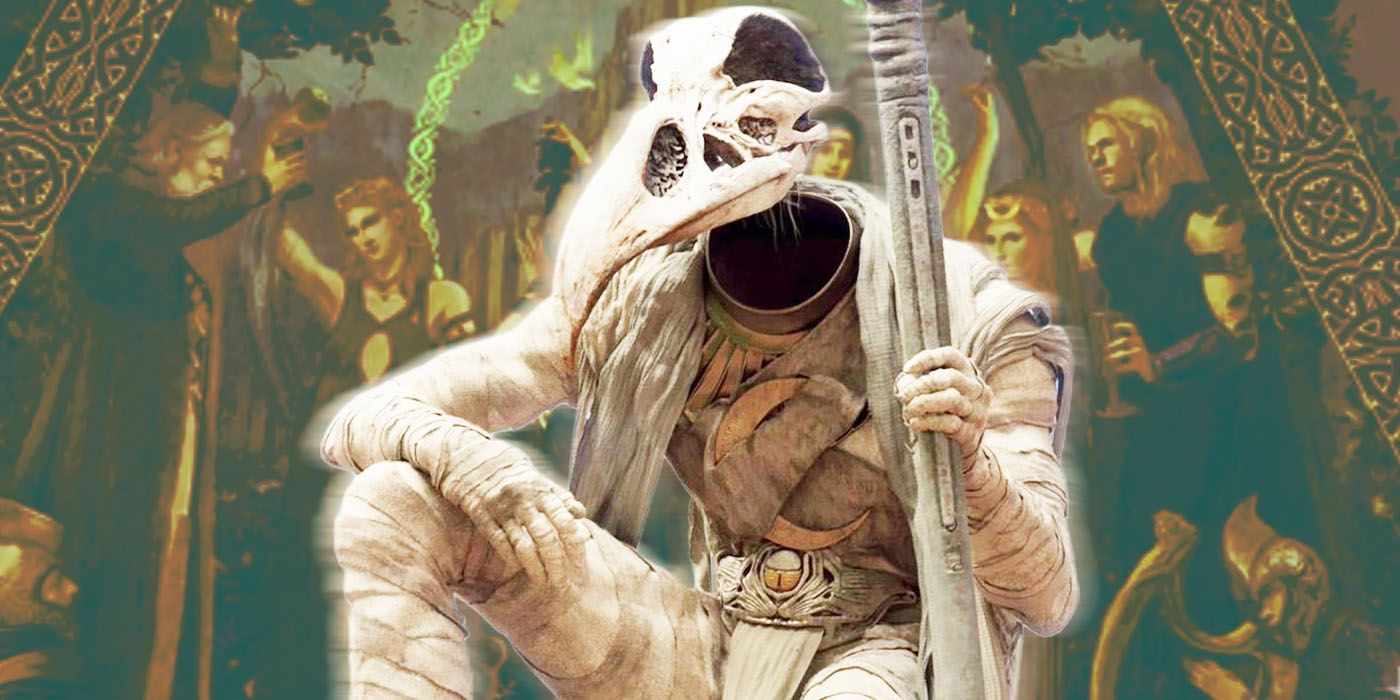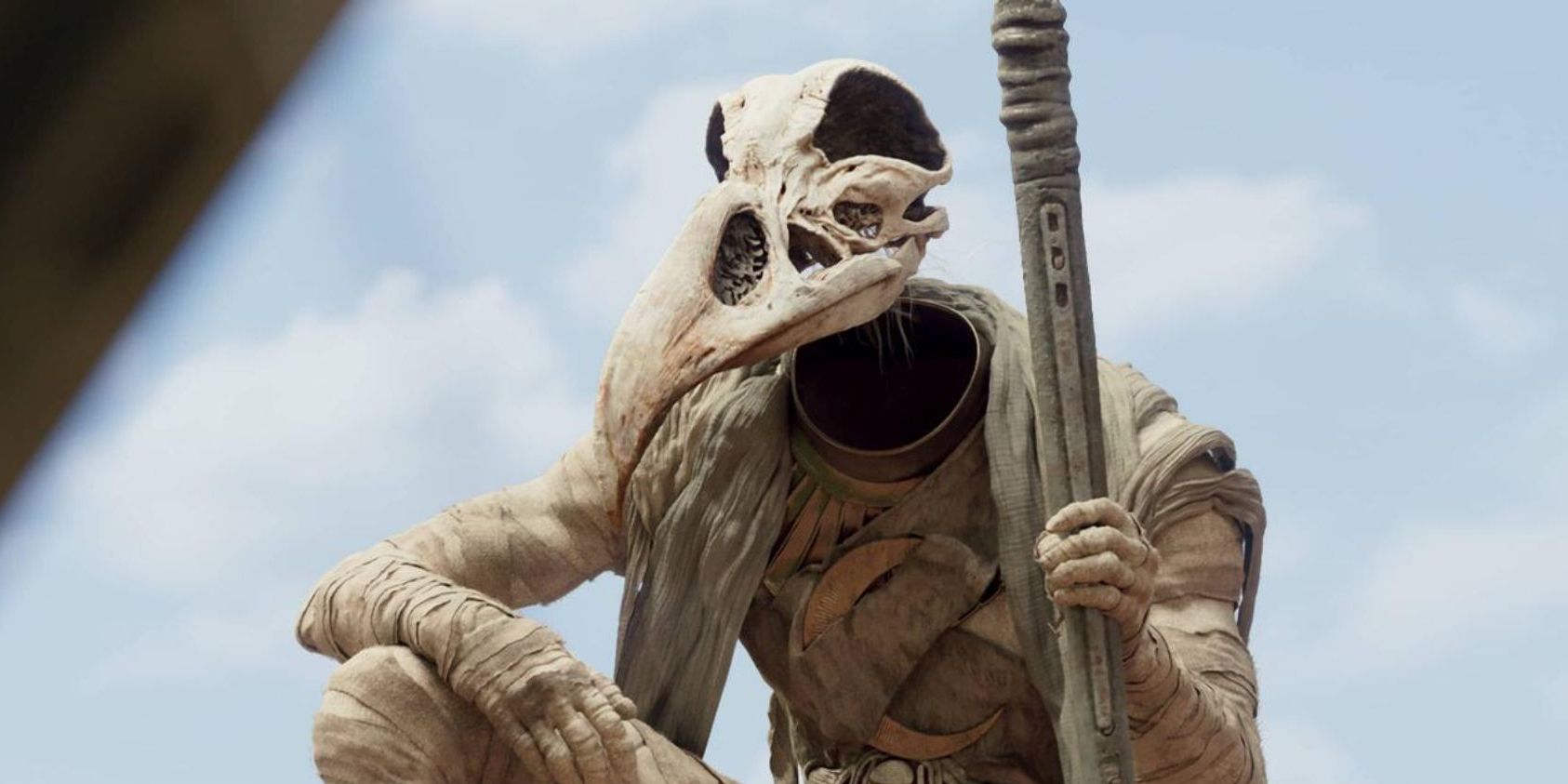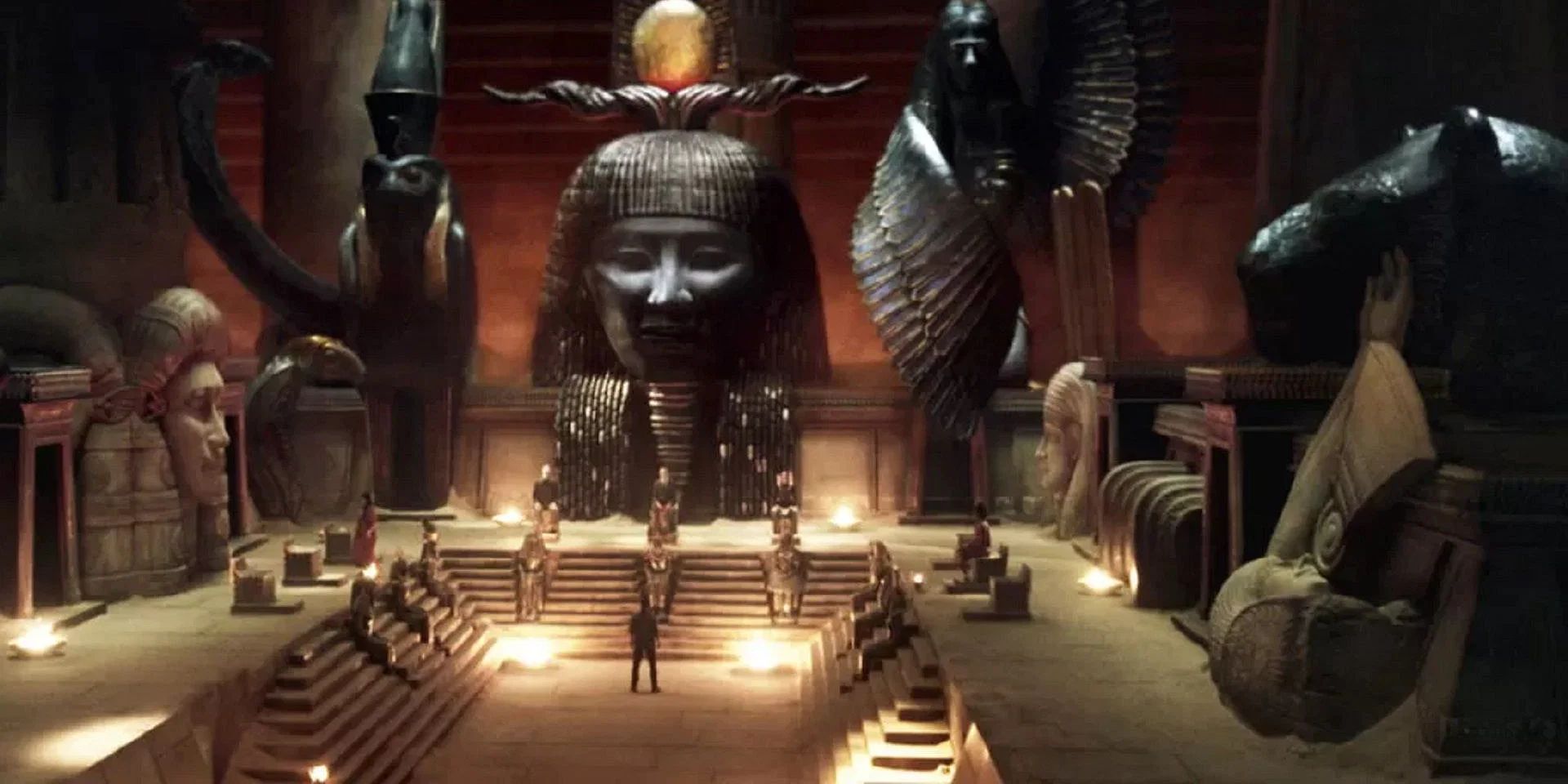The main antagonist of Thor: Love and Thunder is shaping up to be Gorr, the God-Butcher, an alien set out to murder the members of godly pantheons throughout the universe. His debut in Thor: God of Thunder #2 in 2012 depicted Gorr as a revenger, who rejected the gods after they seemingly refused to help the starving people on his nameless, dying planet. After Knull and a Celestial battled, All-Black the Necrosword fell to his planet and Gorr picked it up to enact his revenge upon the deities across the cosmos.
While Gorr proves to be a significant threat to the Asgardians -- seeing that he’s a god himself -- the Ennead of Ancient Egyptian gods in Moon Knight reveals that the gods have been their own biggest enemy for millennia. Their fear of being exposed to humanity after vowing to take a backseat in human affairs – akin to the Eternals – makes them quick to react when one of their own threatens to reveal their existence. They bind each other in stone ushabtis, forcing them into dormancy and imprisoning them for their crimes.
In the third episode of Moon Knight, “The Friendly Type,” Marc Spector and the other Avatars are summoned to the Great Pyramid of Giza, where the council of the Ennead meets for very important occasions. Khonshu, a disgraced member of the Ennead, forces an eclipse to cajole his fellow gods into holding a council meeting to interrogate Arthur Harrow for trying to resurrect the vengeful Ammit. The remaining members of the Ennead threaten, and eventually imprison, Khonshu with an ushabti if he continues with his theatrics, like forcing eclipses and turning back the night sky. When Khonshu’s binding is complete, his ushabti is brought to a whole gallery of ushabtis that implies the gods have been doing this for quite some time.
Gorr is a formidable threat to the deities populating the Marvel Cinematic Universe for sure, and certainly one that is hell-bent on eliminating them from existence, but the Ennead shows that in-fighting and ultimatums are the biggest threat to their livelihood -- not an alien calling himself a god butcher. Their desperate attempts to keep their existence and powers concealed from humanity by trapping each other in ushabtis are self-sabotaging at best and a death sentence at worst. The Ennead is made up of nine gods, as Steven Grant mentions in "The Goldfish Problem," but only five remain. Who knows if the other members of the Ennead have been imprisoned, too?
The Ennead have been doing Gorr’s work for him, it seems. They could be acting out of self-interest and self-preservation, but this eventually leads to their death by Ammit’s hands when Harrow frees the goddess from her ushabti, meaning their efforts to stay alive were done in vain. Perhaps the way Moon Knight depicts their gods -- as testy, petty and even outright dramatic -- will factor into why Gorr is out on his revenge against the gods to begin with: their obsession with holding onto what power they do have has made them negligent of their duties to mortals and therefore unworthy of worship.
Moon Knight’s depiction of gods was the perfect primer to Thor: Love and Thunder. It fleshes out how gods and their respective pantheons have been acting across the universe, providing ample reason and context for why Gorr would feel the need to wipe them from existence. By showing how the divine are their own worst enemies in Moon Knight, they question their actual function in the progression of the cosmos and put Gorr's mission ahead of schedule.
To see the Ennead at work, all six episodes of Moon Knight are available for streaming on Disney+. Thor: Love and Thunder will release in theaters on July 8.



